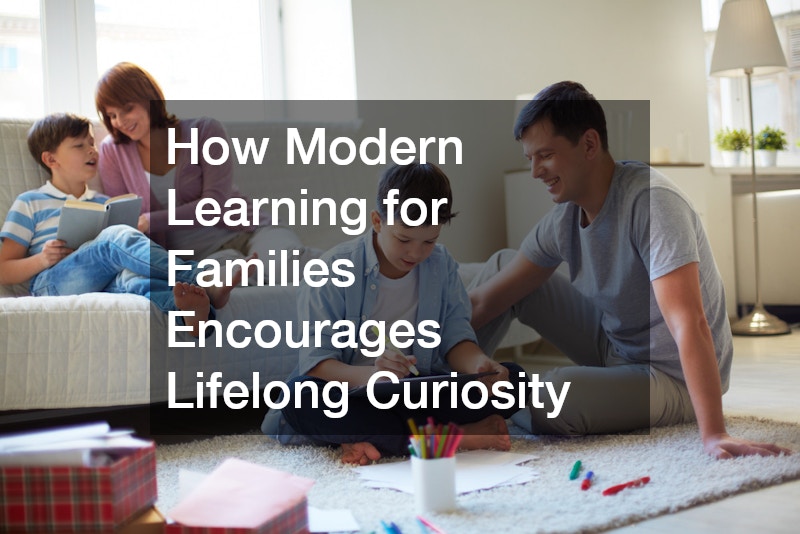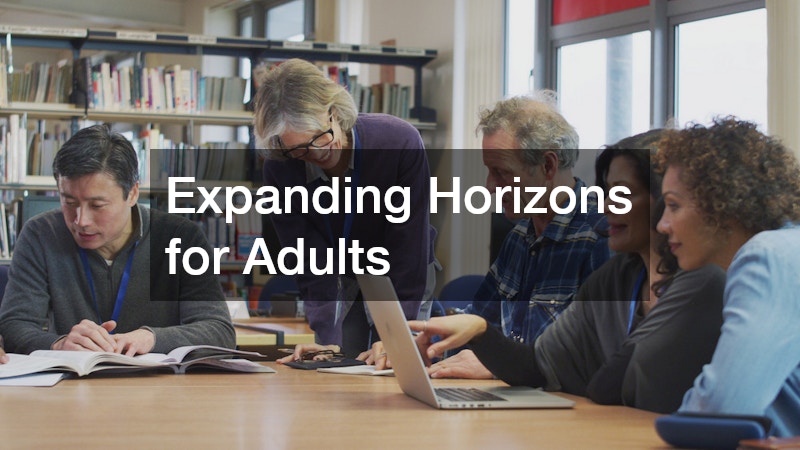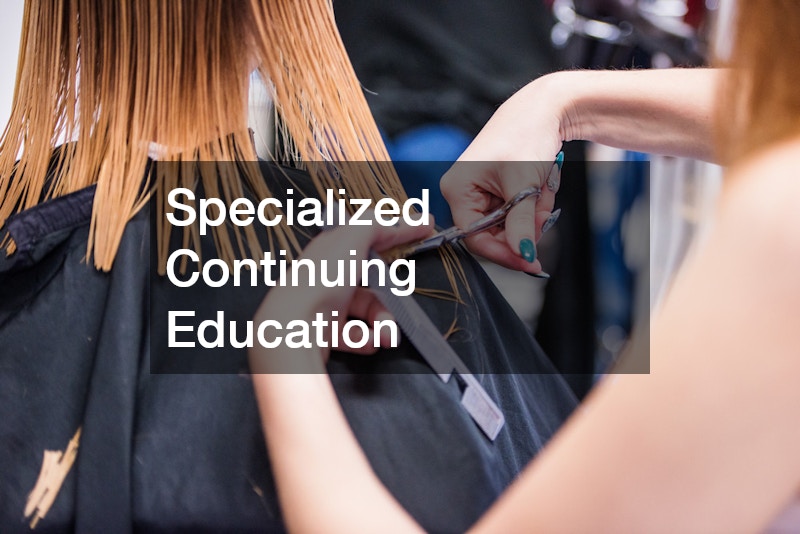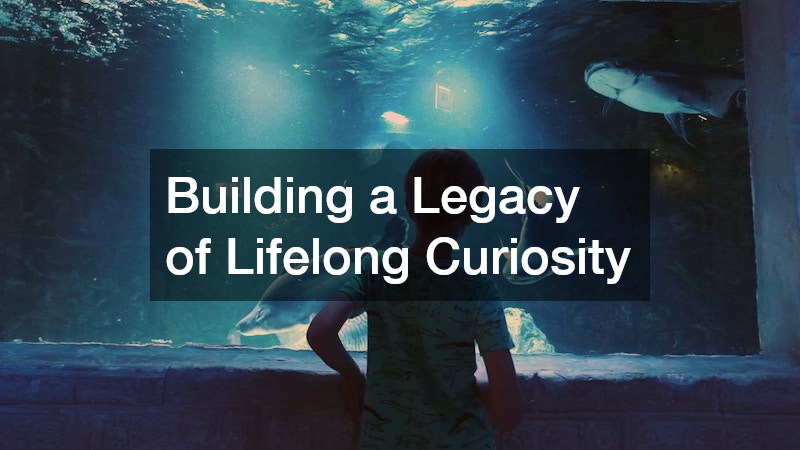Lifelong curiosity thrives in environments where learning is viewed not as a phase of life but as a continuous, evolving journey. Families that prioritize shared exploration, education, and creativity often find that each generation inspires the next to keep growing. In today’s world, educational opportunities are more dynamic than ever before, encompassing innovative classrooms, online programs, workshops, and hands-on experiences that connect people of all ages. Modern learning for families blends traditional education with curiosity-driven discovery, creating an ecosystem where children and parents alike can pursue knowledge together. This approach not only enriches individual lives but also strengthens family bonds, proving that curiosity is a skill best nurtured across generations.
Early Curiosity and Educational Foundations
Children are natural explorers. From the moment they begin to ask “why,” their curiosity becomes the driving force behind how they understand the world. Encouraging that early wonder requires environments designed to cultivate creativity, critical thinking, and problem-solving. One of the strongest examples of this approach can be found in stem schools. These institutions introduce children to science, technology, engineering, and mathematics through interactive experiments and real-world problem-solving. By encouraging students to tinker, test, and question, such schools build confidence and inspire a deep love for discovery.
Similarly, the Montessori school model focuses on student-led learning. Instead of traditional lectures, students in these environments explore materials and ideas at their own pace, guided by curiosity rather than rigid instruction. This method fosters independence, decision-making, and an intrinsic motivation to learn. It aligns closely with the philosophy behind modern learning for families, which emphasizes learning through exploration, not obligation. Parents who embrace this approach often see their children develop stronger critical-thinking skills, better emotional intelligence, and greater adaptability.
When educational foundations are rooted in exploration, curiosity becomes second nature. Children exposed to inquiry-based programs are more likely to carry that curiosity into adolescence and beyond. Whether through hands-on science experiments, building small robots, or solving math-based puzzles, these early learning experiences help children understand that mistakes are opportunities for growth. Families that support this mindset at home reinforce the belief that learning is never truly finished—it’s simply a lifelong adventure.
Modern learning for families doesn’t only equip children with academic knowledge; it also provides them with emotional and social tools. Working collaboratively with peers teaches empathy, patience, and communication. Parents who engage in discussions about what their children are learning show that education is a shared experience, not a task delegated to teachers alone. When curiosity is celebrated in this way, it sets the tone for a lifetime of discovery and growth.
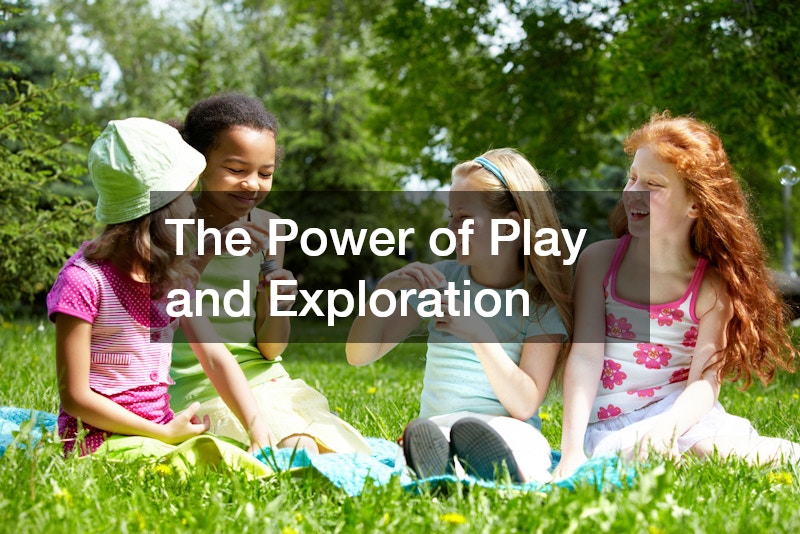
The Power of Play and Exploration
Play is one of the most powerful forms of learning. Through play, children explore their surroundings, test their abilities, and learn how to adapt. Structured activities like summer camps provide ideal opportunities for experiential education outside of the classroom. These programs often combine recreation with skill-building, offering lessons in teamwork, leadership, and resilience. Whether children are learning to kayak, code, or act in a summer production, they gain confidence in their ability to learn through doing.
Summer camps are also an example of how modern learning for families extends beyond academics. Parents who enroll their children in these programs understand that education does not only happen at a desk. Outdoor exploration, art projects, and group challenges help children connect classroom knowledge to real-world applications. For example, a camp focused on environmental science can teach children about sustainability while encouraging them to appreciate nature. These experiences can spark lifelong interests in ecology, conservation, or biology.
Unstructured play is equally vital. When children have time to create freely—whether building forts, inventing stories, or conducting their own “backyard experiments”—they develop self-expression and problem-solving skills. Parents can support this by fostering a home environment where creativity is valued. Encouraging questions, providing space for projects, and celebrating effort rather than perfection are small but significant ways to nurture curiosity.
Modern learning for families thrives when both structure and freedom coexist. Parents who understand the balance between guided education and independent exploration empower their children to take charge of their learning. This balance mirrors the way adults continue learning later in life—through curiosity, experimentation, and self-motivation. Children who experience this at an early age grow into adults who view education as an exciting process, not a mandatory one. That belief lays the foundation for lifelong curiosity.
Academic Growth and Enrichment Opportunities
As children grow, their curiosity becomes more sophisticated. They begin to see patterns, make predictions, and develop personal interests. Academic enrichment helps channel this curiosity into meaningful learning experiences. A private school program, for example, often offers specialized coursework, smaller class sizes, and individualized attention that allow students to dive deeper into subjects that fascinate them. With access to enriched curricula, students learn how to research, present, and apply their knowledge beyond the classroom.
Parents play an essential role in helping children identify which environments best nurture their curiosity. Some may thrive in traditional academic settings, while others excel in experiential or arts-based programs. What matters most is ensuring that learning continues to feel relevant and engaging. When families make educational choices that reflect their child’s natural interests, it strengthens motivation and confidence.
Modern learning for families emphasizes diversity in educational experiences. Technology, for example, allows children to take virtual field trips, participate in international classroom collaborations, or explore interactive simulations in science or history. These tools not only expand learning opportunities but also foster digital literacy—an essential skill for the modern age. Parents who actively engage with these resources model the idea that curiosity can be cultivated through innovation.
Furthermore, enrichment doesn’t always mean academics. Many families invest in creative outlets like art, dance, or music programs that allow children to express themselves. These experiences teach discipline and perseverance while reinforcing that learning can be joyful. Curiosity grows when children are allowed to follow their passions without fear of failure. As they progress through different stages of education, they learn to see themselves as lifelong learners capable of adapting to new challenges—a skill that will serve them throughout adulthood.
Expanding Horizons for Adults
Curiosity doesn’t end when formal education does—it simply evolves. Adults who continue to seek knowledge model resilience, adaptability, and passion for their children. Lifelong learning is essential in today’s fast-changing world, where new technologies, industries, and ideas continually emerge. Adults who pursue continuing education, certifications, or personal development workshops demonstrate that learning is an ongoing process.
For instance, flight school training is a prime example of adult education that fosters both discipline and wonder. Many individuals pursue this path later in life, not only for career advancement but also as a personal challenge. Learning to fly combines technical knowledge, precision, and confidence—qualities that reignite curiosity and expand one’s perspective on what’s possible. It represents the same spirit of exploration that modern learning for families encourages across all generations.
Adults may also take courses unrelated to their careers purely out of interest. Photography, creative writing, cooking, or coding classes can provide a sense of fulfillment and intellectual stimulation. These pursuits challenge the brain, improve focus, and reduce stress. More importantly, they remind adults that learning can be enjoyable, not obligatory. When parents engage in such activities, they create an environment where curiosity is visibly celebrated.
Technology has made adult learning more accessible than ever before. Online platforms allow professionals and parents to learn new skills on their own schedule. This flexibility aligns perfectly with the philosophy of modern learning for families, which values integration rather than separation—bringing education into the rhythm of everyday life. Whether through formal programs or informal hobbies, adults who stay curious continue to evolve, both personally and professionally.
Career-Focused Learning Pathways
For many adults, continued education serves both practical and personal goals. Career training and certification programs allow individuals to stay relevant in their fields while also exploring new ones. Esthetician training programs, for instance, teach the science and artistry behind skincare and beauty. These programs combine technical expertise with creativity, appealing to individuals who enjoy working hands-on and continuously mastering new techniques.
Similarly, becoming a fitness trainer represents another path to lifelong learning. It requires understanding anatomy, nutrition, and motivation—skills that contribute not just to a career but to personal health and well-being. Both examples illustrate how adult learning can lead to more fulfilling lives while setting a positive example for children. When parents pursue new skills or certifications, they model persistence and curiosity, reinforcing the message that growth is lifelong.
Modern learning for families includes supporting parents in these endeavors. Children who see their parents studying for exams, attending workshops, or practicing new skills understand that learning doesn’t stop after graduation. This shared experience often strengthens family relationships, creating opportunities for mutual encouragement and understanding.
Moreover, adult learners benefit from engaging with others who share their passions. Networking with peers in training programs fosters collaboration and community, mirroring the same benefits children experience in school. Lifelong curiosity thrives in social environments where people exchange ideas, share feedback, and celebrate progress. As parents expand their knowledge, they also expand their ability to guide their children through future educational challenges, making the learning journey a shared adventure.
Specialized Continuing Education
As society evolves, so do learning opportunities. Specialized programs allow adults to develop advanced skills in niche industries. For example, a pdo thread seminar offers hands-on experience for medical or aesthetic professionals seeking to expand their expertise in minimally invasive cosmetic procedures. These specialized learning environments blend science, creativity, and technology—key ingredients for curiosity and innovation.
Similarly, adults interested in the creative or beauty industries might pursue balayage services training. This specialized technique requires an understanding of color theory, precision, and artistry. It’s an example of how professionals in any field can continue refining their craft while embracing new trends. Even something as seemingly routine as hair care services can evolve into a lifelong study of technique, chemistry, and customer experience.
These examples highlight how modern learning for families is not limited to academic institutions—it extends into workshops, trade schools, and professional development events. Parents who take part in such programs often gain not only new certifications but also renewed enthusiasm for their work. They bring that enthusiasm home, influencing how their children view education and ambition.
Continued learning keeps adults intellectually stimulated and emotionally fulfilled. It helps them adapt to changing industries, maintain confidence, and inspire curiosity in others. Whether through technical courses, creative workshops, or professional certifications, the goal remains the same: to stay engaged, open-minded, and motivated to grow. This mindset bridges the gap between individual development and family-wide learning, reinforcing that curiosity is a lifelong pursuit.
Family Learning as a Shared Experience
When both children and parents commit to continuous learning, the home becomes a dynamic environment for growth. Families that explore together—through museums, science fairs, or even shared online courses—build stronger emotional connections. These shared experiences make education a source of joy and togetherness, not stress or competition.
Modern learning for families thrives in households where curiosity is celebrated daily. Parents who ask questions alongside their children, read together, or experiment with new hobbies create an atmosphere of discovery. For example, a parent attending a photography class might teach their child the basics of composition, while a child fascinated by astronomy might share their knowledge about constellations. These exchanges encourage open dialogue and mutual respect.
Moreover, families that learn together often experience better communication. Discussions about what each member is learning foster empathy and understanding. Children see their parents as role models who value education, while parents gain insight into how their children think and process information. This reciprocal relationship builds trust and curiosity on both sides.
Incorporating learning into family routines doesn’t require formal lessons. Simple activities like cooking, gardening, or exploring local history can become opportunities for inquiry and problem-solving. The key is to maintain a spirit of openness and excitement. Families that practice this approach find that curiosity becomes a defining part of their culture.
Ultimately, the power of modern learning for families lies in its inclusivity. It unites generations under a shared purpose: to keep growing, questioning, and exploring the world. When curiosity becomes a family value, learning transcends age, transforming from a task into a lifelong passion.
Building a Legacy of Lifelong Curiosity
The legacy of lifelong curiosity begins with one simple idea—that learning never stops. In a world that constantly evolves, the ability to adapt and stay curious is one of the greatest strengths a family can cultivate. Whether through formal education, self-guided exploration, or creative experimentation, curiosity fuels progress and purpose.
Children raised in homes that value learning grow into adults who continue seeking knowledge. Parents who invest in their own education—whether through a new degree, professional certification, or personal hobby—model perseverance and enthusiasm. This mutual exchange creates a ripple effect, inspiring each generation to explore further than the last.
Modern learning for families reinforces this intergenerational connection. It shows that education isn’t something confined to classrooms or childhood; it’s a lifelong endeavor shaped by collaboration and curiosity. As technology, science, and culture continue to evolve, so too must our approach to learning. When families embrace curiosity together, they create a culture of growth that lasts well beyond the classroom—and well into the future.
